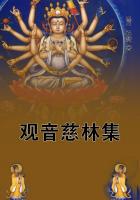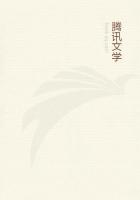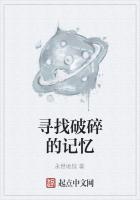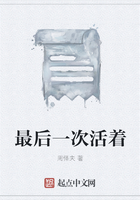He persisted in preaching "the sacred truth" to his highness and this (according to the detractors of Annius) was the only use he made of the sacred truth. There is a legend that Caesar Borgia poisoned the preacher (1502), but people usually brought that charge against Caesar when any one in any way connected with him happened to die. Annius wrote on the History and Empire of the Turks, who took Constantinople in his time; but he is better remembered by his 'Antiquitatum Variarum Volumina XVII. cum comment. Fr. Jo. Annii.'
These fragments of antiquity included, among many other desirable things, the historical writings of Fabius Pictor, the predecessor of Livy. One is surprised that Annius, when he had his hand in, did not publish choice extracts from the 'Libri Lintei,' the ancient Roman annals, written on linen and preserved in the temple of Juno Moneta. Among the other discoveries of Annius were treatises by Berosus, Manetho, Cato, and poems by Archilochus. Opinion has been divided as to whether Annius was wholly a knave, or whether he was himself imposed upon. Or, again, whether he had some genuine fragments, and eked them out with his own inventions. It is observed that he did not dovetail the really genuine relics of Berosus and Manetho into the works attributed to them. This may be explained as the result of ignorance or of cunning; there can be no certain inference. "Even the Dominicans," as Bayle says, admit that Annius's discoveries are false, though they excuse them by averring that the pious man was the dupe of others. But a learned Lutheran has been found to defend the 'Antiquitates' of the Dominican.
It is amusing to remember that the great and erudite Rabelais was taken in by some pseudo-classical fragments. The joker of jokes was hoaxed. He published, says Mr. Besant, "a couple of Latin forgeries, which he proudly called 'Ex reliquiis venerandae antiquitatis,' consisting of a pretended will and a contract." The name of the book is 'Ex reliquiis venerandae antiquitatis. Lucii Cuspidii Testamentum. Item contractus venditionis antiquis Romanorum temporibus initus. Lugduni apud Gryphium (1532).'
Pomponius Laetus and Jovianus Pontanus were apparently authors of the hoax.
Socrates said that he "would never lift up his hand against his father Parmenides." The fathers of the Church have not been so respectfully treated by literary forgers during the Renaissance.
The 'Flowers of Theology' of St. Bernard, which were to be a primrose path ad gaudia Paradisi (Strasburg, 1478), were really, it seems, the production of Jean de Garlande. Athanasius, his 'Eleven Books concerning the Trinity,' are attributed to Vigilius, a colonial Bishop in Northern Africa. Among false classics were two comic Latin fragments with which Muretus beguiled Scaliger.
Meursius has suffered, posthumously, from the attribution to him of a very disreputable volume indeed. In 1583, a book on 'Consolations,' by Cicero, was published at Venice, containing the reflections with which Cicero consoled himself for the death of Tullia. It might as well have been attributed to Mrs. Blimber, and described as replete with the thoughts by which that lady supported herself under the affliction of never having seen Cicero or his Tusculan villa. The real author was Charles Sigonius, of Modena.
Sigonius actually did discover some Ciceronian fragments, and, if he was not the builder, at least he was the restorer of Tully's lofty theme. In 1693, Francois Nodot, conceiving the world had not already enough of Petronius Arbiter, published an edition, in which he added to the works of that lax though accomplished author.
Nodot's story was that he had found a whole MS. of Petronius at Belgrade, and he published it with a translation of his own Latin into French. Still dissatisfied with the existing supply of Petronius' humour was Marchena, a writer of Spanish books, who printed at Bale a translation and edition of a new fragment. This fragment was very cleverly inserted in a presumed lacuna. In spite of the ironical style of the preface many scholars were taken in by this fragment, and their credulity led Marchena to find a new morsel (of Catullus this time) at Herculaneum. Eichstadt, a Jena professor, gravely announced that the same fragment existed in a MS.
in the university library, and, under pretence of giving various readings, corrected Marchena's faults in prosody. Another sham Catullus, by Corradino, a Venetian, was published in 1738.
The most famous forgeries of the eighteenth century were those of Macpherson, Chatterton, and Ireland. Space (fortunately) does not permit a discussion of the Ossianic question. That fragments of Ossianic legend (if not of Ossianic poetry) survive in oral Gaelic traditions, seems certain. How much Macpherson knew of these, and how little he used them in the bombastic prose which Napoleon loved (and spelled "Ocean"), it is next to impossible to discover. The case of Chatterton is too well known to need much more than mention.
The most extraordinary poet for his years who ever lived began with the forgery of a sham feudal pedigree for Mr. Bergum, a pewterer.
Ireland started on his career in much the same way, unless Ireland's 'Confessions' be themselves a fraud, based on what he knew about Chatterton. Once launched in his career, Chatterton drew endless stores of poetry from "Rowley's MS." and the muniment chest in St.
Mary Redcliffe's. Jacob Bryant believed in them and wrote an 'Apology' for the credulous. Bryant, who believed in his own system of mythology, might have believed in anything. When Chatterton sent his "discoveries" to Walpole (himself somewhat of a mediaeval imitator), Gray and Mason detected the imposture, and Walpole, his feelings as an antiquary injured took no more notice of the boy.


